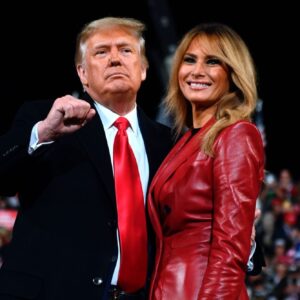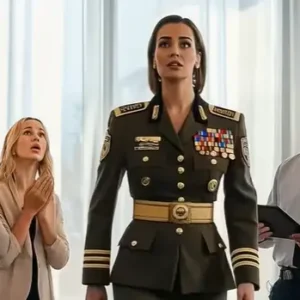Legal Expert Discusses Sealed Court Records in High-Profile Case
Harvard Law Professor Emeritus provides insights into confidential documents and legal proceedings
Distinguished Attorney Addresses Complex Legal Matter
In a comprehensive legal analysis aired during a recent television interview, Harvard Law Professor Emeritus Alan Dershowitz offered detailed insights into the complex judicial proceedings surrounding one of the most closely scrutinized cases in recent legal history. The distinguished attorney, known for his expertise in constitutional law and high-profile criminal defense work, addressed questions about sealed court documents and the legal processes governing confidential records.
Speaking with legal correspondent Shannon Bream, Dershowitz clarified several misconceptions that have circulated in media coverage of the case, particularly regarding the nature and scope of sealed judicial records. His commentary provides valuable perspective on how federal court systems handle sensitive documents and the legal standards governing their potential release.
“There is no such thing as an official ‘client list’ as many people imagine,” Dershowitz explained during the interview. “However, that doesn’t preclude the existence of names and information within various court filings, sealed records, and redacted interviews that remain in the possession of multiple federal judicial districts.”
Understanding Sealed Legal Documents
The legal expert’s analysis focused on the complex framework governing confidential court records, explaining how sensitive information is typically handled within the federal judicial system. According to Dershowitz, multiple types of documents may contain relevant information, including sealed affidavits, FBI investigative reports, and judicial orders that have been filed under seal to protect ongoing investigations or individual privacy rights.
“I’ve reviewed some of the available materials through proper legal channels,” Dershowitz stated. “Certain names and details have been redacted from publicly available versions, but they remain present in the sealed court records. These include references to individuals who may have been mentioned in various contexts during the investigation.”
The attorney emphasized the importance of distinguishing between different types of legal documents and their respective levels of confidentiality. He clarified that while grand jury testimony remains strictly protected under federal law, other categories of court records may be subject to different standards for potential disclosure.
“The sealed records I’m referring to are not grand jury transcripts,” Dershowitz clarified. “Rather, they include materials filed by federal judges in various judicial districts, particularly within the Southern District of New York court system.”
FBI Investigative Materials and Witness Interviews
Among the sealed documents Dershowitz referenced are FBI reports containing interviews with alleged victims and witnesses. These investigative materials, he explained, were compiled during the extensive federal investigation and contain information that has been redacted from publicly available court filings.
“At least one FBI interview report contains references to what the bureau classified as ‘very important people,’” Dershowitz noted. “These names have been blacked out in any publicly released versions of the documents, but they remain present in the sealed court records.”
The legal expert emphasized that the existence of names in investigative documents does not constitute evidence of wrongdoing, noting that individuals may be mentioned in witness statements for various reasons, including as potential witnesses themselves or in other non-criminal contexts.
Addressing Credibility and False Accusations
Dershowitz used his platform to address broader issues regarding the credibility of accusations and the legal system’s responsibility to distinguish between substantiated claims and false allegations. He drew from his extensive experience in criminal defense to highlight the complexities involved in evaluating witness testimony and accusations in high-profile cases.
The attorney referenced his own experience being falsely accused, noting that Virginia Giuffre had initially named him among those she alleged wrongdoing against. Giuffre later retracted the accusation in 2022, stating she “may have made a mistake” in her identification. Dershowitz had consistently denied the allegations and pursued legal action to clear his name.
“This case illustrates the critical importance of carefully evaluating all accusations and maintaining the presumption of innocence,” Dershowitz explained. “The legal system must distinguish between credible allegations and those that may be false or mistaken.”
Case Study in False Allegations
To further illustrate his point about the need for careful evaluation of claims, Dershowitz referenced the case of Sarah Ransome, another individual who had made accusations in connection with the investigation. Ransome had initially filed an affidavit claiming to possess video evidence involving multiple high-profile figures, including former presidents and other public officials.
“Ms. Ransome initially claimed to have videotaped evidence involving several prominent individuals,” Dershowitz explained. “However, following investigation, she later admitted to fabricating these claims, stating she had done so to draw attention to the broader issues and protect herself.”
Despite Ransome’s retraction of her allegations, Dershowitz noted that her original affidavit remains part of the sealed court record, demonstrating how false accusations can become part of the permanent legal documentation even after being discredited.
“This case exemplifies why we must carefully distinguish between true accusations and false ones,” he emphasized. “Many individuals have been falsely accused in connection with this matter, sometimes with malicious intent.”
Political and Transparency Considerations
The interview also addressed recent political developments related to the case, including statements from former President Donald Trump regarding potential transparency measures. Trump had posted on his social media platform that he had instructed the Justice Department to seek court approval for releasing relevant grand jury testimony, citing a desire for transparency.
“I have asked the Justice Department to release all Grand Jury testimony subject to court approval,” Trump’s statement read. “Transparency in this matter serves the public interest.”
Dershowitz provided legal context for such statements, explaining the complex procedures required for any potential release of sealed judicial records and the various legal standards that courts must consider when evaluating such requests.
Named Individuals and Legal Protections
During the interview’s conclusion, Dershowitz referenced several prominent individuals who had been mentioned in various court filings, emphasizing that being named in legal documents does not constitute evidence of criminal conduct. The individuals he mentioned included former Senate Majority Leader George Mitchell, former UN Ambassador Bill Richardson, and former Israeli Prime Minister Ehud Barak.
“These individuals were mentioned in various contexts within the court filings, but none have been charged with any criminal conduct related to this matter,” Dershowitz clarified. “It’s essential to maintain the distinction between being mentioned in legal documents and being accused of wrongdoing.”
Legal Standards and Future Proceedings
The legal expert concluded his analysis by addressing the complex standards that federal courts must apply when considering whether to unseal confidential records. These considerations include balancing public interest in transparency against individual privacy rights, protecting ongoing investigations, and maintaining the integrity of the judicial process.
“Federal courts must carefully weigh multiple factors when considering unsealing requests,” Dershowitz explained. “These include the public’s right to information, individual privacy rights, and the potential impact on ongoing legal proceedings.”
He noted that any decisions regarding the potential release of sealed records would likely require extensive judicial review and could face appeals regardless of the initial ruling.
Implications for Legal Practice
Dershowitz’s commentary provides valuable insights into how the legal system handles high-profile cases involving sensitive information and multiple prominent individuals. His analysis highlights the importance of maintaining legal standards and due process protections even in cases that generate significant public attention.
The interview also demonstrates the complex challenges facing attorneys who work on controversial cases, including the need to balance client confidentiality with public interest and the professional responsibility to correct misconceptions about legal proceedings.
Continuing Legal Developments
As legal proceedings continue and courts consider various motions related to sealed records, Dershowitz’s analysis provides important context for understanding the complex legal framework governing such decisions. His expertise in constitutional law and criminal defense offers valuable perspective on the principles that guide judicial decision-making in sensitive cases.
The ongoing debate over transparency versus privacy in this matter reflects broader questions about how the legal system should handle cases involving public figures and sensitive information. Legal experts continue to monitor developments while emphasizing the importance of maintaining established legal standards and due process protections.
The full scope of any potential document releases remains to be determined by federal courts, which must carefully balance competing interests while maintaining the integrity of the judicial process.

Sophia Rivers is an experienced News Content Editor with a sharp eye for detail and a passion for delivering accurate and engaging news stories. At TheArchivists, she specializes in curating, editing, and presenting news content that informs and resonates with a global audience.
Sophia holds a degree in Journalism from the University of Toronto, where she developed her skills in news reporting, media ethics, and digital journalism. Her expertise lies in identifying key stories, crafting compelling narratives, and ensuring journalistic integrity in every piece she edits.
Known for her precision and dedication to the truth, Sophia thrives in the fast-paced world of news editing. At TheArchivists, she focuses on producing high-quality news content that keeps readers informed while maintaining a balanced and insightful perspective.
With a commitment to delivering impactful journalism, Sophia is passionate about bringing clarity to complex issues and amplifying voices that matter. Her work reflects her belief in the power of news to shape conversations and inspire change.





